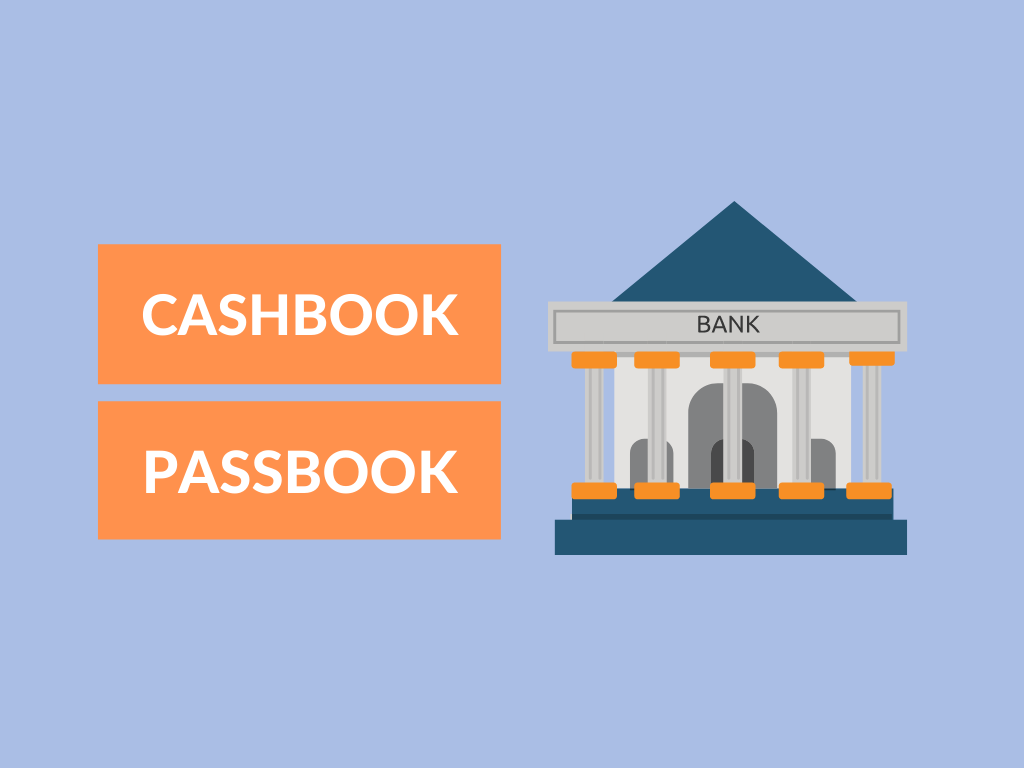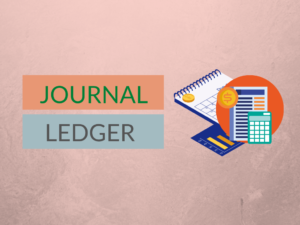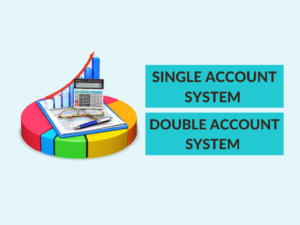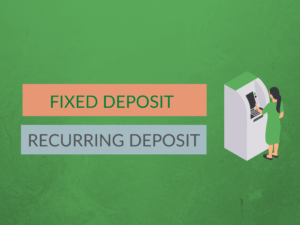In the modern business era, very few businesses conduct their operations without a bank account. All business concerns find it extremely useful to have an account with a bank.
Traders keep only a small amount of cash in hand for immediate requirements and deposit the excess cash with the bank. Traders maintain cashbook and passbook is the ledger form in the bank.
Cashbook is maintained by the business and passbook is a depositor’s ledger A/C in the bank. To avoid differences between cashbook and passbook bank reconciliation statements are maintained.
In this article, we will look briefly into the difference between cashbook and passbook and reasons for the differences.
What is Cashbook?
Cashbook is used to record cash receipts and cash payments. If a trader has an account with a bank, there may be several transactions relating to the bank.
To record all these bank transactions, bank columns are provided on both sides of the cash book. In such a case a bank account is not opened separately in the ledger. So the bank columns in the cash book will become the bank account.
Cash book ( bank columns only )
| Particulars | Amount | Particulars | Amount |
| 1. Favourable balance/ cash at bank | XXX | 1. Unfavourable balance/ overdraft balance | XXX |
| 2. Cash / cheques deposited in bank | XXX | 2. Cash is withdrawn from the bank | XXX |
| 3. Direct deposits of customers into the bank | XXX | 3. Cheques issued | XXX |
| 4. Incomes collected by the bank | XXX | 4. Expenses paid by bank | XXX |
| 5. Interest on bank deposits | XXX | 5. Dishonour of the cheque deposited | XXX |
| 6. Bills receivable discounted with the bank | XXX | 6. Dishonour of the bill discounted | XXX |
| 7. Dishonour of the cheques issued. | XXX | 7. Bank charges | XXX |
| 8. Interest on bank overdraft | XXX |
What is Passbook?
At the time of opening an account with the bank, the bank gives a small book to the customer, which is known as a passbook. All the entries in the passbook are made by the bank staff only.
A passbook is a copy of the account of a customer in the ledger of the bank. The customer( trader ) is allowed to keep this book with him, but he is not allowed to write anything in the passbook. Passbook shows how the bank transactions are recorded by the bank in its ledger.
Passbook looks like in the following form:
| Date | Particulars | ch.no. | Dr. (withdrawals) | Cr. (deposits) | Balance dr/cr (amount) |
| XXXX XXXX XXXX XXXX XXXX | Balance b/d Cash deposited Cheque deposited Cash withdrawn Cheque paid | XXXX XXXX | XXXX XXXX | XXXX XXXX XXXX XXXX XXXX |
Difference between Cashbook and Passbook:
| Cash book | Pass book |
|---|---|
| Meaning | |
| Cashbook is the cash incoming/outgoing in the company book. | The passbook is the copy of depositors' ledger A/C in the bank. |
| Prepared by | |
| Written by a depositor. | Written by the bank. |
| Recorded as | |
| The cheque deposited for collection is recorded on the date of deposit. | Recorded when it is actually collected. |
| A cheque when issued to a creditor is recorded | Passbook is recorded when it is paid by bank |
| Deposit | |
| Deposit is recorded on the debit side of the cash book. | Deposit is recorded on the credit side of the passbook. |
| Withdrawn | |
| Withdrawn is recorded on the credit side of the cashbook. | Withdrawn is recorded on the debit side of the passbook. |
| Balance | |
| Debit balance ⇉Cash at bank Credit balance⇉Bank overdraft | Debit balance ⇉Bank overdraft Credit balance ⇉Cash at bank |
| Time of preparation | |
| Prepared on a particular date | Prepared on a particular period |
| Necessity | |
| Not compulsory | Compulsory for the bank to prepare it. |
Bottomline:
As a result of the preceding discussion, As part of internal auditing, a bank reconciliation statement is prepared to help reconcile the two books. A list of reasons for non-agreement between cash book and pass book is also provided.
Importance of Bank reconciliation statement:
The difference between cashbook and passbook may be due to time lag or a mistake or even fraud. Hence, there is a need to reconcile the two balances i.e; bank balance as per cashbook and bank balance as per passbook. Following are the advantages of preparing a Bank Reconciliation Statement:
- We can know the reasons for disagreement between bank balance as per cash book and bank balance as per pass book.
- Mistakes, if any, can be found out and can be rectified thereafter.
- Frauds, if any, can be detected.
- If we know the correct balance, our cheques will not be dishonoured.
- We can keep our cashbook up to date by recording direct deposits/ charges shown in the passbook.
Further related readings:





